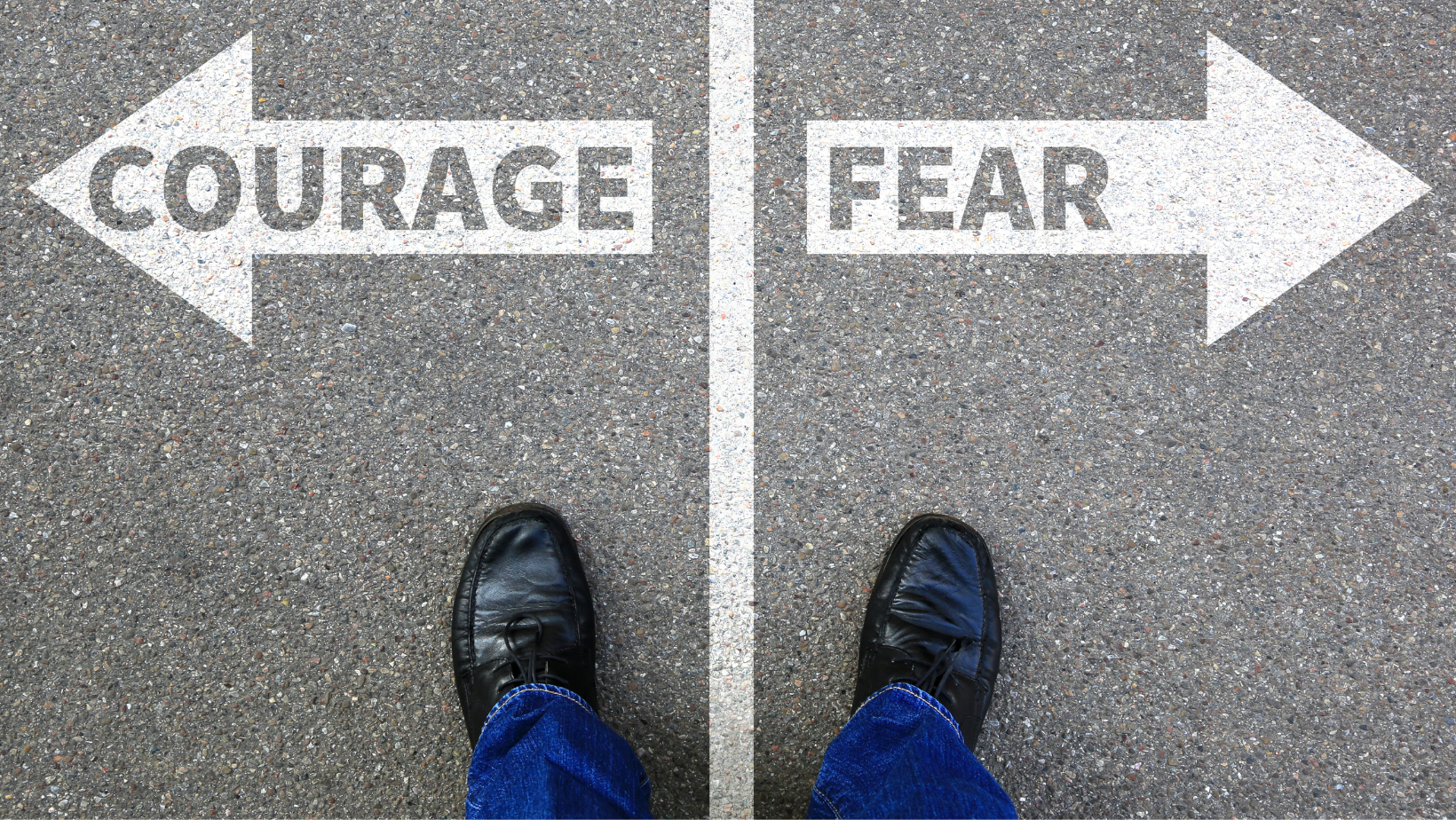
Just as Halloween night approaches and we anticipate opening the door to some scary costumes, our world today is filled with it’s own share of unexpected scares and uncertainties. Let's discuss what fear is and the different ways it can affect our lives.
You see, fear is usually a reaction to something that is happening around you, but the feeling of fear arises within you.
In other words, you are the source of your fear, not your circumstances.
What is Fear?
Fear is a powerful and often instinctual emotional response to a perceived threat or danger.
It can manifest as a heightened state of alertness, increased heart rate, and the anticipation of potential harm.
In real life, fear can take many forms. For instance, someone standing at the edge of a high cliff may experience fear as they look down and worry about falling. This is a tangible, physical fear associated with immediate danger.
On the other hand, consider the fear of failure, which may prevent a student from pursuing a challenging academic course due to the anxiety of not performing well. This is a less tangible but equally potent example of fear. Both examples showcase how fear can influence our decisions and behaviours in various ways.
A lot of the fear that we experience as humans can be less tangible, this type of fear is when you feel anxious or uneasy about things that aren't immediately dangerous.
It's often caused by the stories we tell ourselves and the meanings we attach to situations and previous events. These fears stem from our beliefs, perceptions, and interpretations of the world around us.
4 Steps To Finding Freedom from Fear:
- Awareness: The first step in conquering your fears is to become aware of them. You can't address something effectively if you don't know it's there. Take time to reflect on your emotions and thoughts. What situations or thoughts trigger your fear? Are there specific patterns or recurring themes? Journalling can be a helpful tool for this process, as it allows you to track your fears over time. Understanding your fears and how they manifest is crucial for moving forward.
- Rationalisation: Once you're aware of your fears, it's essential to assess their validity. Not all fears are rational or based on real threats. Our minds can create scenarios that are far scarier than reality. Challenge your fears by asking questions like, "What is the actual likelihood of this fear coming true?" and "What's the worst-case scenario, and how would I handle it?" Rationalising your fears helps you differentiate between rational concerns and irrational anxieties.
- Visualisation: Whenever you’re afraid of something, step back and imagine yourself successfully completing the task or overcoming the obstacle you’re facing. Picture yourself having already succeeded. Imagine the accolades you’ll receive, the balance in your bank account growing, or the joy you’ll feel when you’ve accomplished it. Really let yourself experience the emotions you’ll feel when you succeed. Visualise your success over and over, and hold the image of it in your mind. This will direct your focus to what you want, rather than what you don’t want—to achievement, rather than fear.
- Action: Overcoming fear often involves taking action, despite feeling afraid. Start small and gradually expose yourself to what you fear. For example, if you're afraid of public speaking, begin by speaking in front of a trusted friend or a small group and then progressively increase the audience size. Breathing exercises and meditation can help manage anxiety in the process. Seeking support from friends, family, or a professional can also provide guidance and encouragement as you work to overcome your fears.
Practicing these techniques can show you that worry, doubt and anxiety are no match for the incredible power that’s inside you.
If you need further guidance, don’t hestitate to reach out - I’d love to help you eliminate fear and create the life you want.
“Courage is not the absence of fear, but rather the judgement that something else is more important than fear.”
